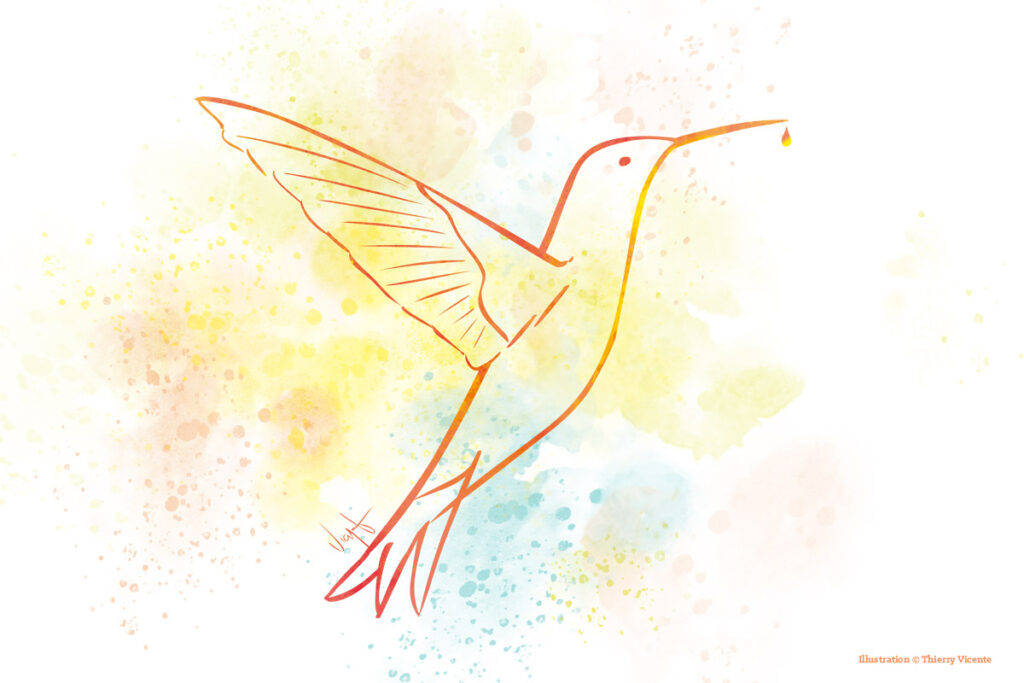[LUM#17] Eurobiomed "Collaborating for innovation
Are competitiveness clusters playing their role as triggers for collaborative innovation? To answer this question, Anne-Sophie Fernandez and Frédéric Le Roy, Professors at UM* and founders of the Coo-innov Chair (coopetition and innovation ecosystems), looked at the case of the regional Eurobiomed cluster specialized in healthcare. They present their analysis in the chair's second report.

To begin with, what is a "pôle de compétitivité"?
A-S.F: It's a government initiative launched in 2004 to encourage private and public players in the same market and territory to collaborate on innovation by forming French-style "clusters". The aim is to expand internationally with large-scale innovations. There are 71 approved clusters in France.
F.LR: It was Mickael Porter, a professor of strategy at Harvard University, who showed in the 1990s that a country's competitiveness is linked to the formation of "clusters" within a territory.
How does the government encourage competing companies to collaborate?
F.LR: By putting companies in touch with each other and facilitating access to financing. Through these clusters, the French government puts companies in touch with each other, certifies innovation projects, and finances and supports them. The aim is to encourage the raising of private funds, pool resources and create economies of scale that companies could not achieve on their own. The label also provides visibility and credibility, guaranteeing the project's innovative potential.
What are the characteristics of the Eurobiomed cluster?
A-S.F: Eurobiomed is one of France's six "health clusters". It's a theme consistent with the city's history, its medical faculty, its research... Its main areas of focus are diagnostic tools and the development of digital innovation for e-health. The cluster has over 400 members, including 330 companies. Of these, 78% are very small, small or medium-sized companies and 4% are intermediate-sized companies and large groups, which is fairly representative of the Montpellier ecosystem.
To analyze Eurobiomed's results for 2019, have you taken up the 5 missions of competitiveness clusters? What are the strong points?
A-S.F: The objective of "fostering public-private collaboration" has been achieved, since 80% of the projects approved are mixed projects. On the other hand, Eurobiomed does not play its part in inter-company collaborative innovation, as there are no 100% private-sector projects. This is also in line with the Montpellier ecosystem, which is made up of start-ups and growing SMEs with no large, pivotal firms.
Competitiveness clusters are intended to foster relations between companies in the same region. Is this the case with Eurobiomed?
F.LR: 94% of Eurobiomed's members are headquartered in the south of France, so the cluster is firmly rooted in the region.
If we now look at all the partners involved in the 56 projects accredited in 2019, only 59% are based in the South, which puts the independence of our innovation ecosystem into perspective.
Is Eurobiomed living up to its promises in terms of funding?
F.LR: Public funding accounts for 41% of the overall budget, which means that for every 1 euro of public investment, there are 2.5 euros of private investment. So there's a real leverage effect for companies.
What about the economic impact?
A-S.F: The 56 projects have created or maintained 478 jobs and filed 158 patents. On average, a collaborative innovation project leads to the creation or maintenance of 9 jobs and the filing of 3 patents, which is very satisfactory.
One of the negative points raised by your report is the low level of European and international exposure? How do you explain this?
A-S.F: Only 13% of projects involve a foreign partner, and 4% of funding obtained in 2019 is European funding. There is a problem of visibility and identification of key partners. The "pôle de compétitivité" system is not the same everywhere, but there are clusters with which it would be interesting to connect, bearing in mind that there is also funding to be found there.
F.LR: We also need to work on structuring our co-branding activities with other French clusters, in particular Lyonbiopôle and Medicen Paris, because here too, our mission is only partially fulfilled. Only 30% of projects have been accredited by at least one other cluster. We need to make progress on these missions to gain greater visibility and raise more funding.
Overall, can we say that Eurobiomed is fulfilling its role of supporting collaborative innovation?
F.LR: Being on the same territory is both an incentive to collaborate and a hindrance, because you have to manage this tension between collaboration and competition, what we call coopetition. We can no longer deny the tensions that structure the world of collaborative innovation. Our report nevertheless shows that, despite a few limitations, yes, competitiveness clusters do encourage collaboration between players in the same innovation ecosystem.
An innovative chair
Created in February 2020 by Frédéric Le Roy and Anne-Sophie Fernandez, the Coo-innov Chair is the first in France to work on collaboration and competition in innovation ecosystems. It is a UM Foundation Chair developed in partnership with Labex Entreprendre (Coopetition Lab Program), MOMA and MBS. " Its aim is to develop synergies around cooperative innovation between researchers, students and companies in the Montpellier ecosystem, as well as with politicians," says the chair's co-founder. The analysis of coopetitive strategies between companies is at the heart of the research carried out by the Chair, which will be presented in the form of a report. "Our aim is to introduce this concept into the public debate, so that players can grasp it and see the dual collaborative and competitive dimensions of innovation. After 15 years of academic work on this theme, we have a lot to say," concludes Frédéric Le Roy.
Listen again to the La science s'amuse podcast
Scientific program co-produced by the University of Montpellier and Divergence FM. On February 25, 2021, Anne-Sophie Fernandez and Frédéric Le Roy will present the first report from the Coo-Innov chair on collaborative innovation in Montpellier.
UM podcasts are now available on your favorite platforms (Spotify, Deezer, Apple podcasts, Amazon Music...).